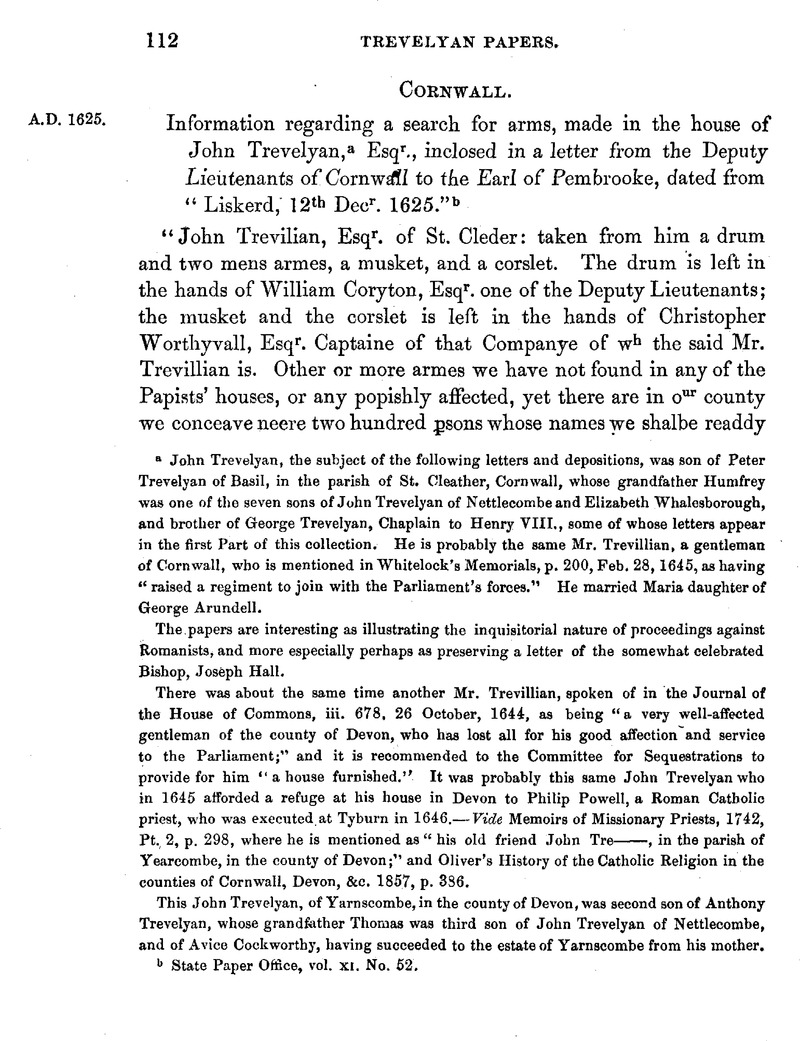No CrossRef data available.
Published online by Cambridge University Press: 23 February 2010

page 112 note a John Trevelyan, the subject of the following letters and depositions, was son of Peter Trevelyan of Basil, in the parish of St. Cleather, Cornwall, whose grandfather Humfrey was one of the seven sons of John Trevelyan of Nettlecombe and Elizabeth Whalesborough, and brother of George Trevelyan, Chaplain to Henry VIII., some of whose letters appear in the first Part of this collection. He is probably the same Mr. Trevillian, a gentleman of Cornwall, who is mentioned in Whitelock's Memorials, p. 200, Feb. 28, 1645, as having “raised a regiment to join with the Parliament's forces.” He married Maria daughter of George Arundell.
The papers are interesting as illustrating the inquisitorial nature of proceedings against Romanists, and more especially perhaps as preserving a letter of the somewhat celebrated Bishop, Joseph Hall.
There was about the same time another Mr. Trevillian, spoken of in the Journal of the House of Commons, iii. 678, 26 October, 1644, as being “a very well-affected gentleman of the county of Devon, who has lost all for his good affection and service to the Parliament;” and it is recommended to the Committee for Sequestrations to provide for him “a house furnished.” It was probably this same John Trevelyan who ni 1645 afforded a refuge at his house in Devon to Philip Powell, a Roman Catholic priest, who was executed at Tyburn in 1646.—Vide Memoirs of Missionary Priests, 1742, Pt. 2, p. 298, where he is mentioned as “his old friend John Tre—, in the parish of Yearcombe, in the county of Devon;” and Oliver's History of the Catholic Religion in the counties of Cornwall, Devon, &c. 1857, p. 386.
This John Trevelyan, of Yarnscombe, in the county of Devon, was second son of Anthony Trevelyan, whose grandfather Thomas was third son of John Trevelyan of Nettlecombe, and of Avice Cockworthy, having succeeded to the estate of Yarnscombe from his mother.
page 112 note b State Paper Office, vol. xi. No. 52.